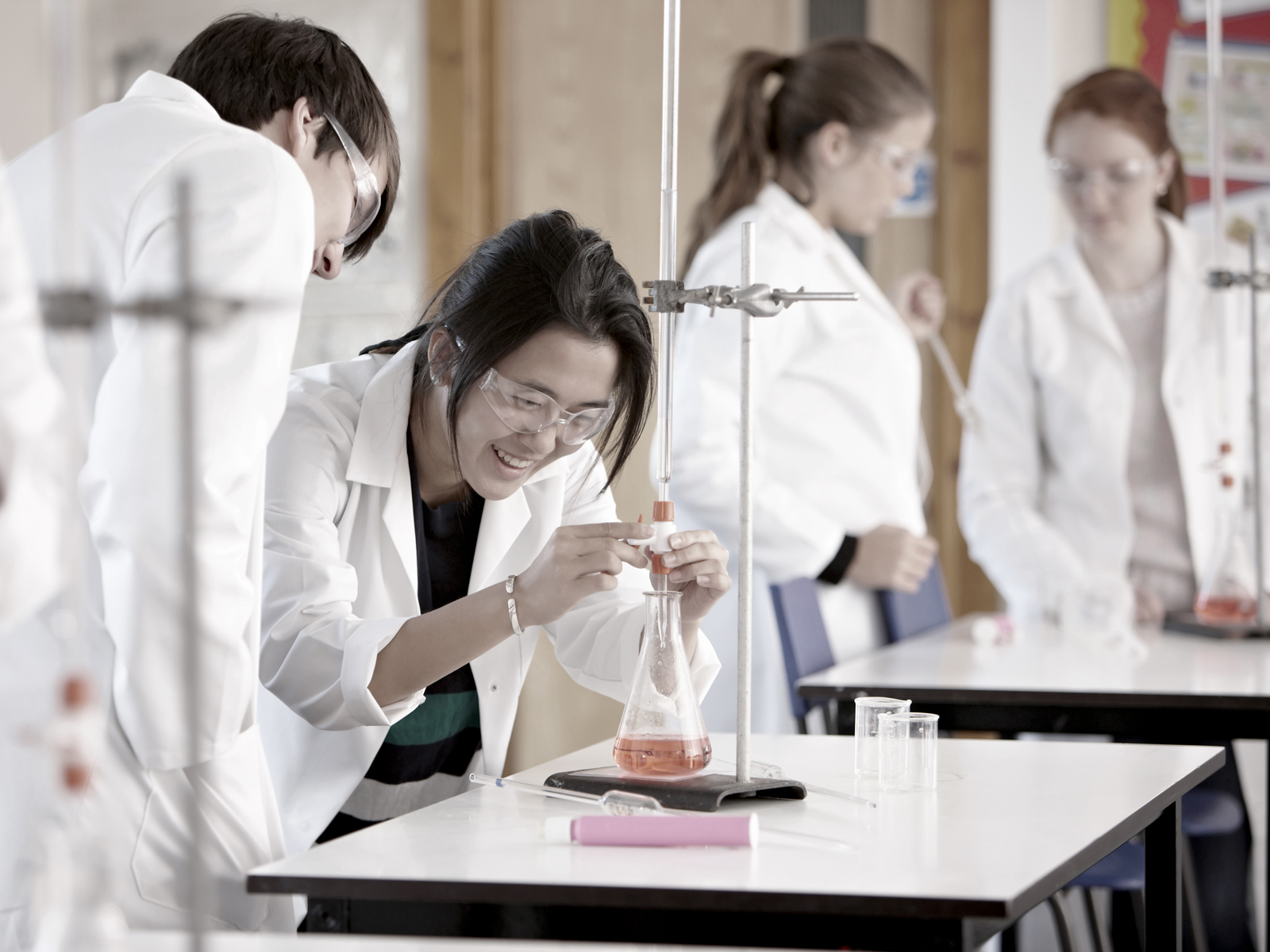Inspiring teaching
When Kristen Gringeri took up a teacher training scholarship in 2013, she had no idea that within five years she would be an assistant principal, and would play a key role in turning around a failing school.
Kristen decided to do a PGCE after spending a few weeks as a teaching assistant and discovering a love for working with young people. Her undergraduate degree was in biochemistry, but she preferred the chemistry modules, so she decided to go down the route of chemistry teaching, and successfully applied for one of the Royal Society of Chemistry’s Teacher Training Scholarships.
"The first year was really hard, because I was quite naïve at the time and hadn't realised what the workload would be like. But working with kids was so much fun, and I have now learned to become really efficient at managing my work."
Half-way through her PGCE year she went to a teaching fair for a large, multi-academy trust with around 50 schools. Having previously had a good experience working for an all-boys school, she asked if they had any vacancies at boys' schools. A few weeks later she had an interview, and got a job as an NQT (newly qualified teacher).
Turning things around
Kristen stayed at her first school for five years and became second in charge of her department, before moving – along with her head teacher – to a partner school which was failing, where she was appointed assistant principal.
"At first I didn’t think I was ready for it. I didn’t feel very confident, but my head teacher said 'you’re ready for it, and you’re a good science teacher'.
"It was really difficult at first because I had never led a team before and I didn’t know what I was doing. I was used to being told what to do and when you’re in that position it’s easy to just do what you’re told and look good. Suddenly I had to make the decisions, and that was really, really scary. I've learned a lot now though – I’ve made mistakes but it has all been really exciting."
Since Kristen joined her new school, the school has introduced A-level chemistry and biology. Results have improved dramatically, with every pupil’s science scores going up by a third on average. Kristen is responsible for vocational and B-techs, and scores for these courses have also gone up by a whole grade on average.
"I know it's not all about outcomes", she says, "but it is important. I'm responsible for a quarter of the students pastorally and we’ve been working on their attendance. As we all know, when kids are in school they learn – we’ve improved attendance by 2% now, which has been fantastic."
"I'm also the curriculum aide so now we’re really focusing on curriculum and thinking about our intent – what is our purpose and rationale. It's made us think back to the point of education, which has been really good."
ARTICLE: Train to teach
Apply now for one of our Teacher Training Scholarships – you’ll get access to invaluable resources and support during your training year and enhanced financial incentives compared to the standard training bursaries.
Be resilient
Reflecting on her teaching career to date, Kristen has this advice for others: "It is really hard work but very rewarding. Don't judge the rest of your career by the first two years, because it gets easier. Be resilient, and don't worry about making mistakes."
"You have to remember it’s a journey, and not to compare yourself to people who are further ahead in their journey, because it’s not about them, it’s about you."
Kristen now conducts interviews for incoming scholarship applications, and she says some things are just as important as your knowledge of chemistry.
"I remember being really nervous about my subject knowledge, because I had taken a three year break between university and going into teaching. I was scared that I didn’t know enough." Nonetheless Kristen’s preparation paid off and she did pass the scholarship chemistry tests.
During the scholarship interview, candidates are asked to teach a mini-lesson to showcase their current abilities. "What we’re looking for in the interview is someone who can be personable, stick to time, and can aim to teach one thing well in the time they have, as opposed to getting through lots of content."
"Don't make it a lecture. Think about what the kids are doing – as opposed to what you are doing – and think about how you’re coming across, not just about the chemistry."
It's all about relationships
Kristen's favourite thing about teaching is working with young people, and she says that love of the subject on its own is not enough.
"Do it if you know you like young people, because it's actually more about relationships", she says.
"My favourite thing is when pupils ask silly questions or they are sarcastic. It's just really funny. And of course it’s great when they get their results back and they get a good grade. You think 'I did that – if I wasn't here that wouldn't have happened'."
Press office
- Tel:
- +44 (0) 20 7440 3351
- Email:
- Send us an email

